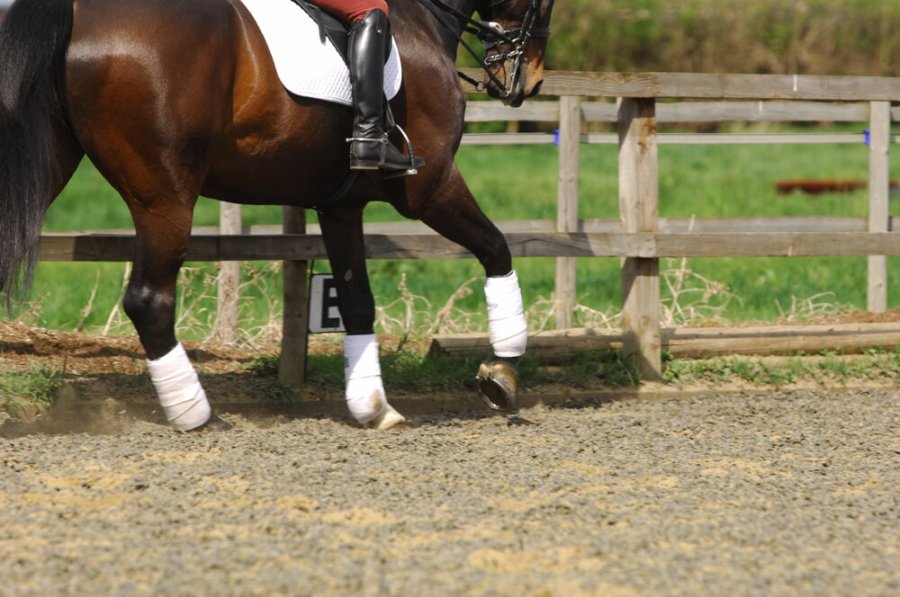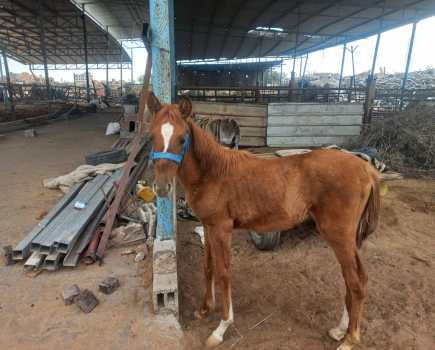Vet advice has been shared and competition rules updated in light of the current shortage in equine flu vaccinations. The British Equine Veterinary Association (BEVA) has offered guidance for owners according to their horse’s risk level, based on their vaccination history and frequency of mixing with other horses/competing.
The categories are as follows:
- Lowest risk level: Adult horses who are fully vaccinated and mixing rarely, with other horses on the yard occasionally mixing.
- Low risk level: Adult horses with incomplete vaccination history and mixing occasionally, with other horses on the yard occasionally mixing.
- Medium risk level: Adult horses who are fully vaccinated and mixing frequently.
- High risk level: Young horses aged four or under with an incomplete vaccination history and mixing rarely, other horses on the yard rarely mixing.
- Highest risk level: Young horse aged four or under and mixing frequently.
Leisure horses
BEVA recommends leisure horse owners in the low or lowest category, whose horse’s 12-monthly booster is due anytime while the shortage is in place should defer their vaccination by up to three months, giving a maximum of 15 months since the previous booster. They say any decision to defer the 12-month booster should be done against local risk assessment and in consultation with their vet.
Those who defer their vaccination are advised to follow with a booster within nine months to ensure the protocol of horses having two boosters within a two-year period is maintained.
BEVA said owners who defer their vaccination should get the affected horse’s passport signed and dated by their vet to document the delay with the statement “12-month booster delayed to due to vaccine shortage – due before > vet to insert date (within three months of due date) <“. This passport entry can be made anytime from one month prior to the original vaccine due date until the date on which the 15-month extension has elapsed, provided that it has been signed before the horse attends an event.
Competition rules
Those competing under the British Horse Society (including British Riding Clubs), the Pony Club, Riding for the Disabled Association, Association of British Riding Schools and The Showing Council Horses will be permitted to defer to a 15-month booster followed by a nine-month booster, to preserve the intention of two boosters in two years, “until further notice”. These horses should have their passports marked and signed by their vet to document the delay and identify the new booster due date (within 15 months).
British Dressage, British Eventing, British Horseball Association and British Carriagedriving currently state that the most recent booster injection must have been given within six calendar months (+21 days) prior to the horse competing. A temporary national exemption of this rule has been put in place, until further notice. The requirement of a 12-month vaccination booster will continue to remain in place.
British Showjumping holds a “strong recommendation” to have a vaccination booster within six months of a competition. This has been removed with immediate effect. The requirement of a 12-month vaccination booster will remain in place until further notice.
British Equestrian Vaulting will retain their 12-month booster rule for the foreseeable future, “while monitoring the situation”.
Endurance GB has said the 12-month booster requirement will be retained. However, in “exceptional circumstances” where the shortage prevents a booster being administered, the horse may extend to 15 months with prior approval by the EGB Welfare Director. These horses must have their passports marked and signed by their vet to document the delay and identify the new booster due date (within 15 months).
Managing the crisis
“We find ourselves in a very difficult situation on how best to mitigate the risks posed by this vaccine shortage,” said Celia Marr, Chair of British Equestrian’s (BEF) Equine Infectious Diseases Advisory Group. “However, [we] hope that we have established guidelines which allow vets to effectively manage supplies within their practices while preserving the established herd immunity amongst our vaccinated population.
“We know the devastating impact an equine flu epidemic can have and must continue to work together to prevent that. We’re grateful to the member bodies for working with us to manage the situation.”
Jim Eyre, BEF Chief Executive, said the federation was grateful for everyone’s support and actions in a bid to “manage this crisis”.
“We want to reassure horse owners in the United Kingdom that deferring their booster for three months will give protection to healthy, adult horses with a good vaccination history and following with the next booster within nine months, so the horse effectively has ‘two in two’, is important,” he said.
“The Emergency Response Group will continue monitor the situation with member bodies and BEVA and, while the end of October has been indicated for supply issues to be resumed, we will make plans under the assumption that this could continue. We will continue to meet until normal vaccine supplies are resumed and six and/or 12-month boosters can be reinstated for all vaccinated horses.”
Horse owners are urged be alert to the signs of illness in horses and, if displayed, not travel or compete, but call the vet as soon as possible. Equally, when introducing new horses into their yard or herd, they are advised to operate a quarantine programme.









